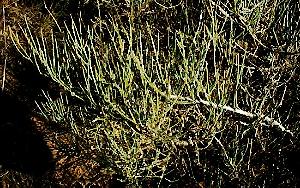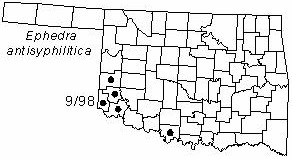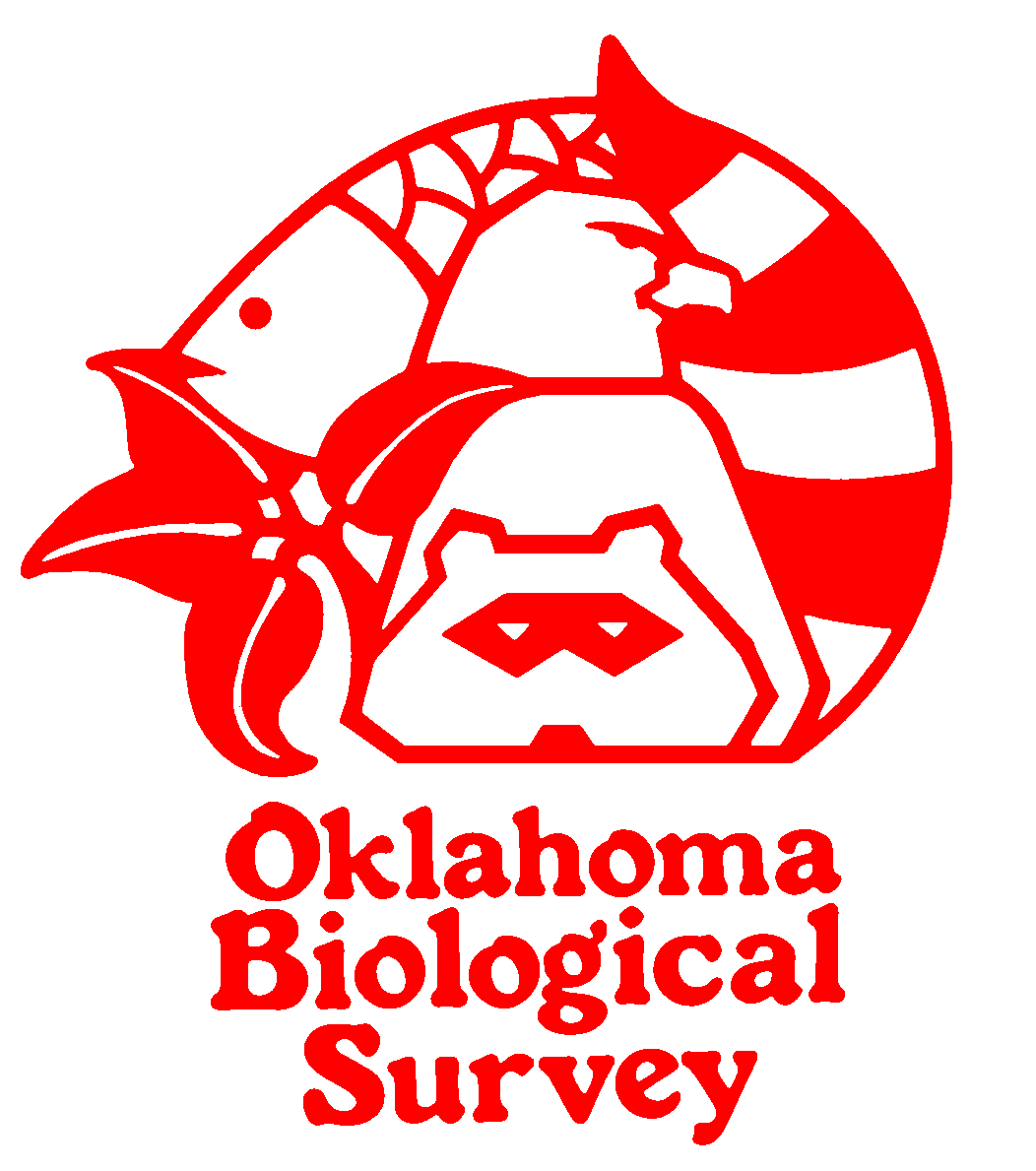
Small shrub to 1 m (3 ft) tall with deep taproot. Bark grayish, irregularly fissured or shreddy. Twigs gray-green to yellowish-green, stiff, hard. Leaves opposite, connate about half their length, 1-4 mm (0.05-0.15 in) long, entire, sharp-pointed, often early-deciduous. Pollen cones 1-2 per node, ovoid, 4-8 mm (0.15-0.3 in) long, scales usually greenish and in 5-8 opposite pairs. Ovulate cones 1-2 per node, ellipsoid, 6-11 mm (0.25-0.4 in) long, scales in 4-6 pairs, inner pairs of scales becoming red and thickened at maturity.
Distribution: Native to the Southern Great Plains southward into Mexico.
Habitat: Sandy flats, gravelly hills, canyons.
NWI status: none
Comment: The specific epithet and common names refer to the supposed capacity of the plant to prevent and cure sexually transmitted diseases. Ephedra is derived from a Greek word meaning horsetail; antisyphilitica refers to its use in medicine.
Distribution in Oklahoma: 
BACK
NEXT
RETURN TO INDEX
Last update: 9/10/99
 Go to Oklahoma Biological Survey Home Page
Go to Oklahoma Biological Survey Home Page
 Disclaimer
Disclaimer